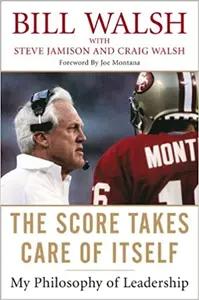Portfolios of the Poor: How the World's Poor Live on $2 a Day
By Daryl Collins
Category
EconomicsRecommended by
"Portfolios of the Poor" by Daryl Collins dives into the lives and financial struggles of the world's poorest people. Through extensive research, the book reveals the daily challenges faced by those living on less than $2 a day and provides insights into their financial choices and strategies.
Utilizing detailed financial diaries, Collins and her team track the financial lives of families in Bangladesh, India, and South Africa, documenting income, expenses, and savings on a daily basis. The book sheds light on how the poor manage their money in order to survive, highlighting their use of informal financial tools such as savings groups, loans from friends and family, and moneylenders.
The authors challenge the notion that poor households are unable to save, showing that even the smallest amounts can accumulate over time. They also analyze why traditional banking and microfinance solutions often fail to address the needs of the poor, often burdening them with high interest rates and inflexible repayment terms.
Furthermore, "Portfolios of the Poor" explores the potential of new financial services, such as mobile banking and microinsurance, to improve the financial well-being of the poor. The book emphasizes the importance of designing financial products and policies that are tailored to the specific needs and capabilities of the poor.
In essence, "Portfolios of the Poor" offers a unique and eye-opening perspective on poverty and finance, presenting a compelling case for rethinking the way financial services are provided to the most vulnerable populations. It urges policymakers, bankers, and development practitioners to take into account the financial realities faced by the poor and work towards creating inclusive and accessible financial systems.
Utilizing detailed financial diaries, Collins and her team track the financial lives of families in Bangladesh, India, and South Africa, documenting income, expenses, and savings on a daily basis. The book sheds light on how the poor manage their money in order to survive, highlighting their use of informal financial tools such as savings groups, loans from friends and family, and moneylenders.
The authors challenge the notion that poor households are unable to save, showing that even the smallest amounts can accumulate over time. They also analyze why traditional banking and microfinance solutions often fail to address the needs of the poor, often burdening them with high interest rates and inflexible repayment terms.
Furthermore, "Portfolios of the Poor" explores the potential of new financial services, such as mobile banking and microinsurance, to improve the financial well-being of the poor. The book emphasizes the importance of designing financial products and policies that are tailored to the specific needs and capabilities of the poor.
In essence, "Portfolios of the Poor" offers a unique and eye-opening perspective on poverty and finance, presenting a compelling case for rethinking the way financial services are provided to the most vulnerable populations. It urges policymakers, bankers, and development practitioners to take into account the financial realities faced by the poor and work towards creating inclusive and accessible financial systems.
Share This Book 📚
More Books in Economics

Principles for Dealing With The Changing World Order
Ray Dalio

The Rational Optimist
Matt Ridley

The Bitcoin Standard
Saifedean Ammous

Economics in One Lesson
Henry Hazlitt

The Ascent of Money
Niall Ferguson

Enlightenment Now
Steven Pinker

The Rise of the Rest
Steve Case

The Road to Serfdom
F.A. Hayek

The Wealth of Nations
Adam Smith

Capital In The 21st Century
Thomas Piketty

Check Your Financial Privilege
Alex Gladstein

Dealing with China
Henry Paulson

Debt
David Graeber

Human Action
Ludwig Von Mises

The Future of Capitalism
Paul Collier

The Prize
Daniel Yergin

The Wealth and Poverty of Nations
David Landes

Thinking In Systems
Donella H. Meadows

Trade Is Not A Four Letter Word
Fred Hochberg

Why Nations Fail
Daron Acemoglu

A Great Leap Forward?
John Mauldin & Worth Wray

A Guide To Econometrics
Peter E. Kennedy

Adaptive Markets
Andrew Lo

Age Of Ambition
Evan Osnos

An Apology for the Builder
Nicholas Barbon

Broken Money
Lyn Alden

Bureaucracy
Ludwig Von Mises

Capitalism Without Capital
Jonathan Haskel & Stian Westlake

Central Banking 101
Joseph Wang

Complexity and the Economy
W. Brian Arthur
Popular Books Recommended by Great Minds 📚

Dune
Frank Herbert

Superforecasting
Philip Tetlock

High Output Management
Andrew Grove

Originals
Adam Grant

The Outsiders
William Thorndike

How to Change Your Mind
Michael Pollan

The Lord of the Rings
J.R.R. Tolkien

Rework
Jason Fried

Blitzscaling
Reid Hoffman

Security Analysis
Benjamin Graham

American Kingpin
Nick Bilton

Good To Great
Jim Collins

The Network State
Balaji Srinivasan

Billion Dollar Whale
Tom Wright

Surely You're Joking Mr. Feynman
Richard Feynman

The Rise And Fall Of American Growth
Robert J. Gordon

The Holy Bible
Various

Only the Paranoid Survive
Andy Grove

The Score Takes Care of Itself
Bill Walsh

The Hard Thing About Hard Things
Ben Horowitz

The Ride of a Lifetime
Bob Iger

The Coddling of the American Mind
Greg Lukianoff & Jonathan Haidt

When Genius Failed
Roger Lowenstein

The Psychology of Money
Morgan Housel

Crossing the Chasm
Geoffrey Moore

Titan
Ron Chernow

The Three Body Problem
Cixin Liu

The Innovators Dilemma
Clayton Christensen

Principles
Ray Dalio

Poor Charlie's Almanack
Charlie Munger
